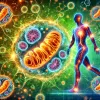Welcome back to our regular feature where we sift through thousands of new, health-related papers, and pick a few to summarize in a practical, simple, and not anxiety-inducing way.
Our main questions on each paper:
- In simple language, what does it say?
- Does it have good evidence?
- Should what it says matter to normal people?
- What simple thing, if anything, could a normal person do to take advantage of this finding?
Okay, away we go. And, as always, we rate each paper for practicality and level of interest, but we are mostly focused on finding ways to simplify findings. And more than anything else, we want to avoid over-optimization, so if a paper is telling you down to the minute how much sunlight to get at dawn, or that you should only drink coffee during eclipses, we are outta there.
This edition's articles and papers:
- Sleepless in Seoul: Students overload on caffeine to cope with academic pressure https://koreapro.org/2024/07/sleepless-in-seoul-students-overload-on-caffeine-to-cope-with-academic-pressure/?utm_source=dlvr.it&utm_medium=twitter
- Lifelong physiology of a former marathon world-record holder - the pros and cons of extreme cardiac remodeling | Journal of Applied Physiology https://journals.physiology.org/doi/abs/10.1152/japplphysiol.00070.2024
- A Neurologist Learned He Had Alzheimer Disease 8 Years Ago—Here’s What He Wants People to Know | Neurology | JAMA | JAMA Network https://jamanetwork.com/journals/jama/fullarticle/2820539?guestAccessKey=f448d8e9-fa66-4bb1-9b5d-9b3a6aa116a5&utm_source=silverchair&utm_medium=email&utm_campaign=article_alert-jama&utm_content=olf&utm_term=062824&adv=null
- Sudden cardiac arrest occurring in temporal proximity to consumption of energy drinks - Heart Rhythm https://www.heartrhythmjournal.com/article/S1547-5271(24)00189-9/fulltext
Paper: Students Overload on Caffeine
Practicality (4/5): 🏃♂️🏃♂️🏃♂️🏃♂️
Interest (4/5): 🏃♂️🏃♂️🏃♂️🏃♂️
Summary
South Korean students are consuming high amounts of caffeine to cope with academic pressure, leading to health concerns. Experts are worried about the long-term effects on mental and physical health, including increased anxiety and heart issues. Efforts to curb caffeine consumption through education and product labeling have had limited impact.
What is the article or paper's main claim?
- South Korean students consume excessive caffeine due to academic stress.
- This high caffeine intake is causing significant health risks, particularly mental health issues.
Are the methods and/or data it uses appropriate and convincing?
- The study references survey data showing an increase in caffeine consumption among students, which is a reliable indicator.
- There is mention of a correlation between high caffeine intake and anxiety, but this lacks strong direct causative evidence.
What do we know now that we didn't know before, if anything?
- The paper highlights a significant rise in caffeine consumption among South Korean youth and links it to the extreme academic pressures they face.
What simple and practical thing could a normal person do knowing this?
- Parents and educators can encourage healthier study habits that do not rely on caffeine, such as proper sleep schedules and balanced nutrition.
Paper: Long-term Endurance Exercise and Heart Health
Practicality (4/5): 🏃♂️🏃♂️🏃♂️🏃♂️
Interest (4/5): 🏃♂️🏃♂️🏃♂️🏃♂️
Summary
This study examines the effects of lifelong intense endurance exercise on the heart and functional capacity of a 77-year-old former world-record-holding male marathoner. Despite a significant drop in maximal oxygen consumption (V̇O2max) with age, his fitness level remained comparable to that of young adults. The study also highlights potential risks, such as atrial fibrillation, which some research associates with prolonged high levels of physical activity.
What is the paper's main claim?
- Lifelong intense endurance exercise can help maintain high levels of cardiovascular and functional fitness into old age.
- There may be potential cardiac risks, such as atrial fibrillation, associated with sustained high-intensity physical activity over a lifetime, but they must be weighed against by vastly better health
Are the methods and/or data it uses appropriate and convincing?
- The study used a longitudinal approach, testing the same individual over 50 years, which strengthens its findings but limits its generalizability.
- Cardiac assessments were comprehensive, but the small sample size (n=1) makes it difficult to draw broad conclusions; effect size and power are inherently limited in single-subject studies.
What do we know now that we didn't know before, if anything?
- Provides concrete evidence of the long-term cardiovascular benefits of lifelong endurance exercise.
- A reminder that while there is the potential for cardiac issues in highly trained athletes, most people are not such athletes.
What simple and practical thing could a normal person do knowing this?
- Regular physical activity is essential for long-term health, preserving aerobic fitness well into later life.
Paper: Life with Alzheimer's
Practicality (4/5): 🏃♂️🏃♂️🏃♂️🏃♂️
Interest (5/5): 🏃♂️🏃♂️🏃♂️🏃♂️🏃♂️
Summary
This article chronicles the personal journey of Daniel Gibbs, a 73-year-old neurologist diagnosed with Alzheimer's disease. He shares his experience, from early indications like losing his sense of smell to his current activities aimed at slowing the disease's progression. Through Gibbs' perspective, we learn about practical strategies and the emotional reality of living with Alzheimer's.
What is the paper's main claim?
- Daniel Gibbs' story highlights the slow progression of Alzheimer's in some cases.
- Practical lifestyle changes, like exercise and diet, can help manage the disease.
Are the methods and/or data it uses appropriate and convincing?
- Personal testimony is compelling but anecdotal; lacks broader statistical validation.
- The discussed lifestyle interventions with respect to building cognitive and aerobic reserves are based on established medical recommendations.
What do we know now that we didn't know before, if anything?
- Insight into how a neurologist personally navigates Alzheimer's, underscoring the variability in disease progression.
- Emphasizes the value of early lifestyle interventions, aerobic effort, and intellectual activity in managing Alzheimer's.
What simple and practical thing could a normal person do knowing this?
- Incorporate regular aerobic exercise and a healthy diet, such as the Mediterranean or MIND diet, to potentially slow cognitive decline.
Paper: Energy Drinks and Cardiac Arrest
Practicality (4/5): 🏃♂️🏃♂️🏃♂️🏃♂️
Interest (4/5): 🏃♂️🏃♂️🏃♂️🏃♂️
Summary
This study investigates cases where people with genetic heart diseases had sudden cardiac arrests shortly after consuming energy drinks. Out of 144 survivors, 7 had consumed energy drinks before their cardiac event. The study suggests a potential risk associated with energy drinks but acknowledges that other factors may also contribute.
What is the paper's main claim?
- Energy drinks may trigger sudden cardiac arrest in individuals with underlying genetic heart conditions.
- The study suggests caution in consuming energy drinks for those with genetic heart diseases.
Are the methods and/or data it uses appropriate and convincing?
- The sample size is small, limiting generalizability.
- The temporal link between energy drink consumption and cardiac arrest is noted, but several confounding factors exist.
What do we know now that we didn't know before, if anything?
- The potential association between energy drink consumption and sudden cardiac arrest in genetically predisposed individuals is further highlighted.
Back next week with thoughtful and simplifying takes on papers getting attention. And if you see anything you want us to look at, let us know.





